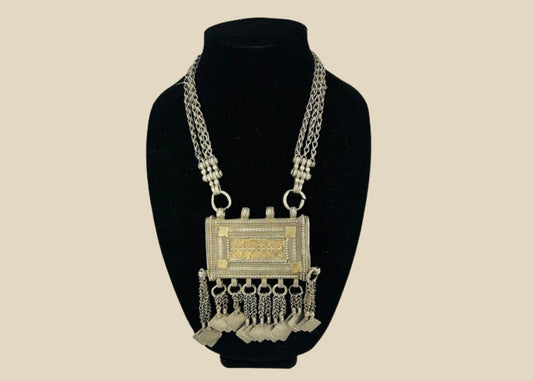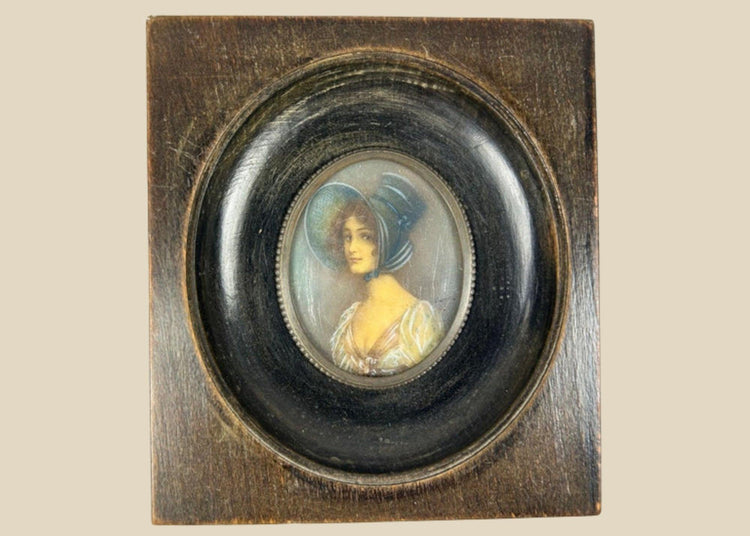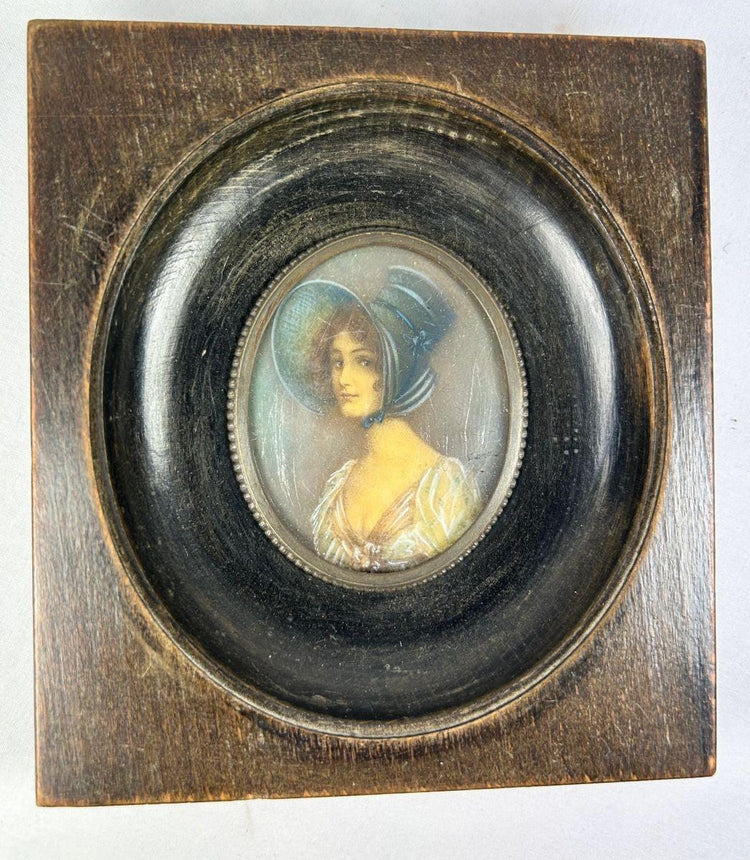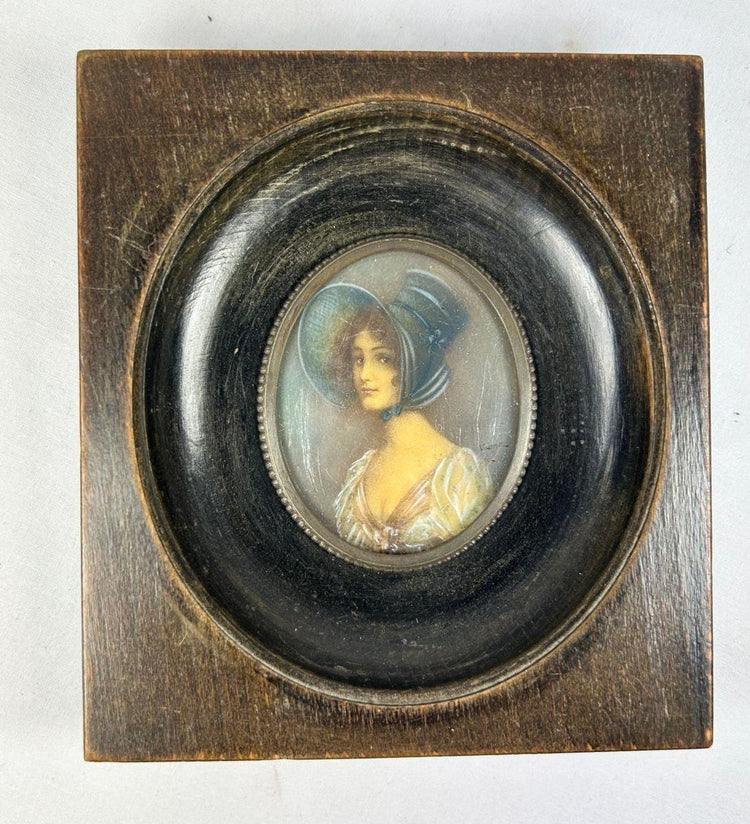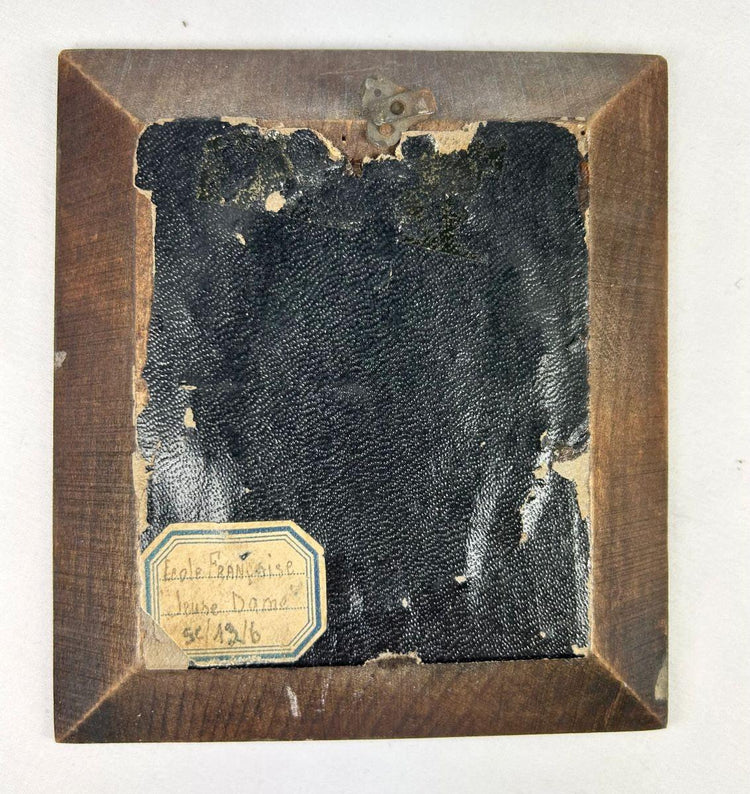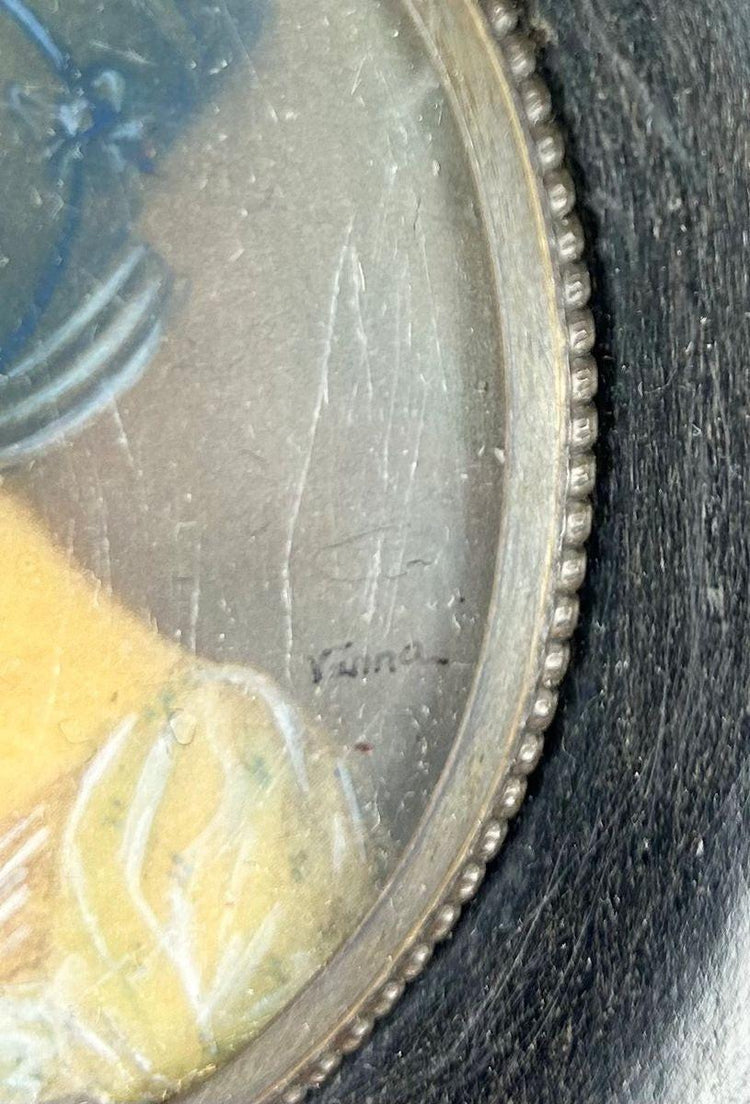Miniature Portrait of a Lady in Bonnet | Signed Vienna | Circa 1850–1880
Description
More
Less
Historical Context & Origin
Region: Continental Europe (possibly Austria or Germany)
Material: Gouache on wafer or ivory, in ebonized wooden frame
Period: Mid to late 19th century (circa 1850–1880)
Description
This elegant miniature portrait depicts a young woman in Regency or early Victorian attire, wearing a wide blue bonnet with ribbon detail, and a low-cut, puff-sleeved dress adorned with subtle lace accents. Her gaze is soft yet direct, and the artist has employed delicate shading and color transitions, particularly in the rendering of her flesh tones and translucent bonnet. The piece is housed in its original, round-shouldered ebonized wooden frame with a recessed oval inset. The visible texture and color choices reflect the romanticism of 19th-century portrait miniatures, which were personal and sentimental keepsakes often used in lieu of photographs.
Signature & Identification
The painting appears signed "Vienna" in the lower right, suggesting the city of origin rather than the name of the artist. The inscription is extremely faint and seems to be preceded by a nearly illegible flourish or initials, possibly a stylized "J." or "F." preceding the word Vienna. This would align with the 19th-century tradition of identifying Viennese studio miniatures, many of which were painted by anonymous but highly skilled artists trained in the academic tradition.
Features
- Intricately hand-painted bust-length portrait
- Signed lower right: "Vienna"
- Original convex glass and ebonized wood frame
- Fine detail in facial features, bonnet, and gown
- Representative of romanticized 19th-century European portraiture
Cultural Significance
Portrait miniatures of this period were intimate, luxurious objects meant to memorialize loved ones or capture fashionable beauty. The sitter’s attire and styling place her firmly within upper-class society, and the Vienna signature points to a city known for its exceptional miniature-painting tradition during the Austro-Hungarian Empire.
Condition
The miniature remains vibrant and well-preserved, though the surface has visible fine age-related craquelure. The frame shows scuffing, scratches, and patina consistent with its age but remains stable and original.
Dimensions (approximate)
Height: 5.2 in
Width: 4.5 in
Age
Circa 1850–1880
Learn More
Explore Our Complete Collection of Historic Works of Art
Discover Portrait Miniatures and Their Artistic Tradition at Christie’s
Description
Historical Context & Origin
Region: Continental Europe (possibly Austria or Germany)
Material: Gouache on wafer or ivory, in ebonized wooden frame
Period: Mid to late 19th century (circa 1850–1880)
Description
This elegant miniature portrait depicts a young woman in Regency or early Victorian attire, wearing a wide blue bonnet with ribbon detail, and a low-cut, puff-sleeved dress adorned with subtle lace accents. Her gaze is soft yet direct, and the artist has employed delicate shading and color transitions, particularly in the rendering of her flesh tones and translucent bonnet. The piece is housed in its original, round-shouldered ebonized wooden frame with a recessed oval inset. The visible texture and color choices reflect the romanticism of 19th-century portrait miniatures, which were personal and sentimental keepsakes often used in lieu of photographs.
Signature & Identification
The painting appears signed "Vienna" in the lower right, suggesting the city of origin rather than the name of the artist. The inscription is extremely faint and seems to be preceded by a nearly illegible flourish or initials, possibly a stylized "J." or "F." preceding the word Vienna. This would align with the 19th-century tradition of identifying Viennese studio miniatures, many of which were painted by anonymous but highly skilled artists trained in the academic tradition.
Features
- Intricately hand-painted bust-length portrait
- Signed lower right: "Vienna"
- Original convex glass and ebonized wood frame
- Fine detail in facial features, bonnet, and gown
- Representative of romanticized 19th-century European portraiture
Cultural Significance
Portrait miniatures of this period were intimate, luxurious objects meant to memorialize loved ones or capture fashionable beauty. The sitter’s attire and styling place her firmly within upper-class society, and the Vienna signature points to a city known for its exceptional miniature-painting tradition during the Austro-Hungarian Empire.
Condition
The miniature remains vibrant and well-preserved, though the surface has visible fine age-related craquelure. The frame shows scuffing, scratches, and patina consistent with its age but remains stable and original.
Dimensions (approximate)
Height: 5.2 in
Width: 4.5 in
Age
Circa 1850–1880
Learn More
Explore Our Complete Collection of Historic Works of Art
Discover Portrait Miniatures and Their Artistic Tradition at Christie’s
You May Also Like

